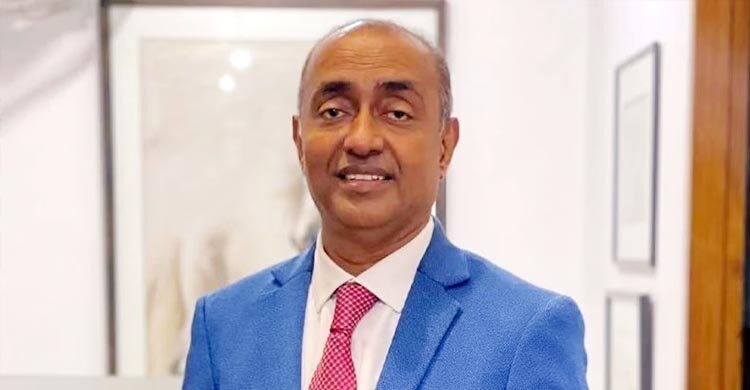Current interim govt can be transformed into caretaker govt: AG

The current interim government can be transformed into a caretaker government during the election period, said Attorney General Md Asaduzzaman.
The Attorney General shared this opinion on Tuesday (December 17) after the High Court verdict declared parts of the Fifteenth Amendment Act to the Constitution inconsistent and void, particularly sections abolishing the non-partisan caretaker government system.
Attorney General's explanation
Responding to journalists' questions, Asaduzzaman explained, “The interim government can be renamed as a caretaker government. For instance, a judge acting in a civil case is referred to as a district judge, and in a criminal case, the same judge is called a sessions judge. Similarly, the current interim government can function as a caretaker government without creating a constitutional conflict.”
He added that the cancellation of the caretaker government system was illegal and had destabilized democracy, harmed the rule of law, and attacked the basic structure of the Constitution.
High Court verdict: Key points
A High Court bench comprising Justice Farah Mahbub and Justice Debashish Roy Chowdhury partially upheld the rule challenging the Fifteenth Amendment Act of 2011. The key highlights of the verdict include:
Sections 20 and 21 of the Fifteenth Amendment, which abolished the caretaker government system, were declared inconsistent with the Constitution and null and void.
The abolition was said to have undermined the basic democratic structure of the Constitution.
Articles 7A (treason for abrogation of the Constitution), 7B (protection of fundamental provisions), and 44(2), introduced through the Fifteenth Amendment, were also declared unconstitutional and void.
Section 47, which removed the provision for a referendum under Article 142, was declared invalid. As a result, the referendum provision in the Twelfth Amendment has been reinstated.
The court emphasiaed that it is the responsibility of the next National Parliament to address other provisions of the Fifteenth Amendment, leaving room for modifications in line with public opinion.
Potential return of the caretaker system
The Attorney General indicated the possibility of reinstating the caretaker system without waiting for the pending review of the Thirteenth Amendment case in the Appellate Division. “In the Thirteenth Amendment case, while four judges termed the caretaker system illegal, three judges considered it legal. Despite that debate, all judges agreed the next elections would be held under the caretaker system,” he explained.
Given this context, Asaduzzaman argued that the High Court’s verdict opens the door for transforming the interim government into a caretaker government, without requiring further judicial clarification.
Legal perspectives and representation
The hearing saw participation from prominent lawyers, including:
Dr Sharif Bhuiyan (for Sujan), Zainul Abedin, Badruddoza Badal, Ruhul Quddus Kajal, Kaiser Kamal, and Farzana Sharmin Putul (for BNP), Mohammad Shishir Monir (for Jamaat), Abdur Rouf and Ishrat Hasan (for Insaniat Biplob Dal).
The Attorney General’s team, including Additional Attorney General Mohammad Arshadur Rouf and Deputy Attorney General Md. Asad Uddin, represented the state.
The verdict also attracted attention from senior lawyers and observers, including Barrister Nishat Mahmud, Barrister Shaikh Mahdi, and Syed Abdullah.
Background
The Fifteenth Amendment Act, passed on June 30, 2011, during the Awami League government, abolished the caretaker government system, increased reserved seats for women in the National Parliament from 45 to 50, and criminalized unconstitutional seizures of state power.
In August of the same year, five individuals, including Badiul Alam Majumdar, Editor of Citizens for Good Governance (Sujan), filed a writ challenging the validity of the Amendment. The High Court subsequently issued a rule, leading to the current verdict.

